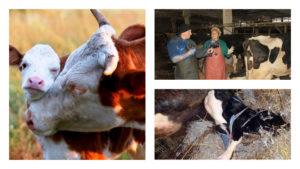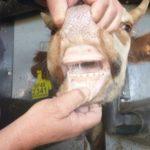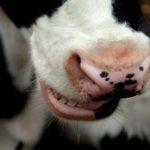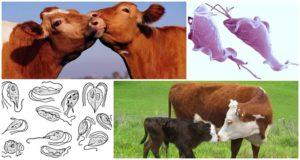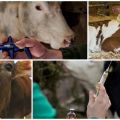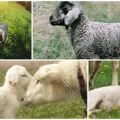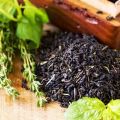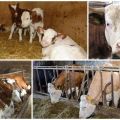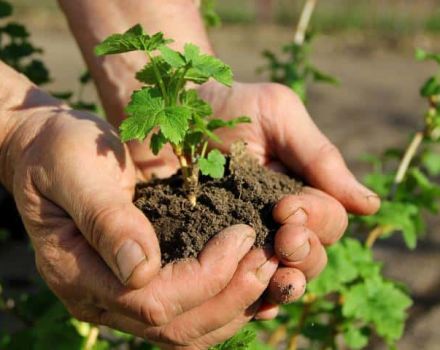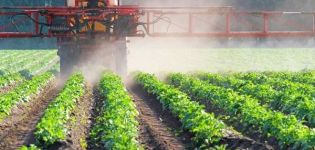Why does a cow have foam at the mouth or drooling a lot and what to do
With profuse salivation in cows, farmers should take immediate action, contact a veterinarian. This problem often signals the development of some kind of disease in livestock. Abundant saliva, foam from the mouth of ruminants can be associated with disruption of the gastrointestinal tract or inflammation. To understand why a cow is drooling profusely and how to deal with it, you need to identify the cause and eliminate it.
Specificity of salivation in cattle
Once in the oral cavity, food is mixed with saliva, which is produced by the sublingual, parotid, submandibular glands, small glands of the mucous membrane. Saliva is a colorless liquid with antimicrobial properties. Its release is a complex reflex reaction that is regulated by the central nervous system.
In cattle, the parotid glands secrete constantly, while the submandibular and sublingual glands produce saliva only during meals and when chewing. Salivation is necessary to provide microorganisms with fluid, to regulate the acid-base balance. Saliva moistens food when chewing, helps with swallowing. With its help, an optimal water balance is maintained, and absorption processes take place. Saliva performs a protective function in case of poisoning, participates in metabolic processes.
The intake of animal food with a high content of organic acids into the body leads to profuse salivation. The increase in internal scar pressure also increases saliva production. The physiological state of the ruminant affects the intensity of its manifestation.

Why and what to do if a cow is drooling?
The reason for this manifestation may be negative processes occurring in the body of the ruminant. Farmers monitor the condition of the cows, seek help from a veterinarian who determines the causes of the disease.
Stomatitis
The cause of the development of inflammation can be:
- taking hot food;
- eating spicy, prickly vegetation;
- trauma to the mouth.
Signs of stomatitis are often hidden, so it is difficult for a breeder to determine why a ruminant is foaming at the mouth.The first sign is that the cow is eating selectively, preferring soft food. When examining the oral cavity, you can notice swelling, dryness and cyanosis of the mucous membrane. The development of the disease provokes the accumulation of viscous mucus in the animal's mouth, which flows outward.
To exclude the appearance of stomatitis, the cow is protected from the use of thorny, sharp and poisonous vegetation. During treatment, the veterinarian prescribes a diet that includes: boiled vegetables, fresh silage, meadow hay. The oral cavity is periodically rinsed with a soda solution.
Poisoning
Animals that graze in meadows are at risk of severe poisoning from poisonous plants, as well as grass that has been treated with pesticides. After consuming poisonous substances or herbs, the animal shows the first signs of poisoning:
- vomiting;
- diarrhea;
- increased salivation;
- dilated pupils;
- rapid breathing.
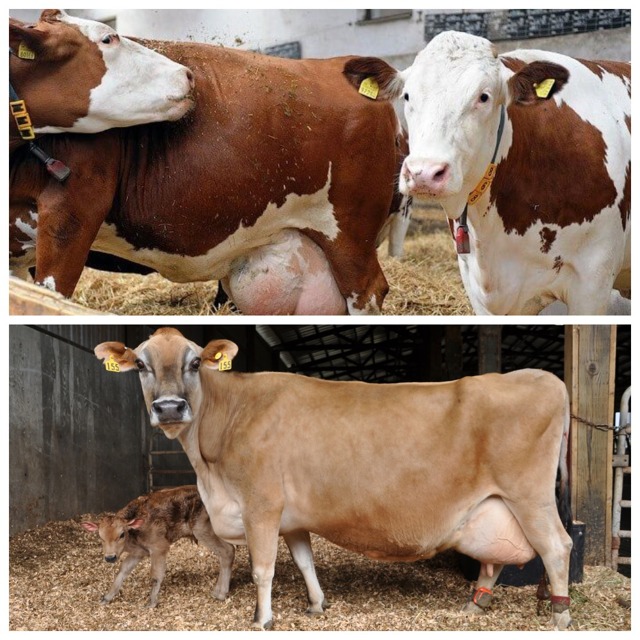
To prevent the risk of poisoning, they are looking for an optimal place for pasture for animals, provide high-quality feed. When the first signs of poisoning appear, the animal is given medications, the stomach is washed with a solution of potassium permanganate.
Tympanic scar (swelling)
The accumulation of gas in the stomach provokes bloating. This ailment appears after the consumption of easily fermented or stale food.
The cause of the pathological condition of the animal can be a blockage of the intestine or an infectious disease.
The cow behaves restlessly, there is an increase in the abdomen, saliva flows profusely, breathing becomes more frequent. During treatment, the veterinarian uses a gas probe to remove gases from the body. The animal is laid in such a way that the legs are above the head. When bloating, drugs help: "Ichthyol", "Tympanol", "Kriolin".
Qatar of the gastrointestinal tract
The appearance of an ailment may be associated with:
- the use of poor-quality feed by animals;
- violation of the diet;
- inflammation of the teeth;
- insufficient conditions of detention.
There is a deterioration in the condition of the cow, loss of appetite, lethargy. A fetid odor appears from the mouth, drooling flows. Adherence to the diet and improvement of living conditions will help eliminate the risk of developing the disease. When treating an adult, castor oil is given in an amount of 500-600 grams, a calf - 50-100 grams.
Blockage of the esophagus
When eating large pieces of food in a ruminant, the digestive tract is disrupted. Blockage can occur as a result of diseases of the cardiovascular system or other important organs. The onset of the disease is accompanied by a stench from the mouth, profuse flow of saliva, diarrhea with bloody discharge. When these signs appear, the animal is prescribed a diet, given plenty of drink, castor oil.
Ingress of a foreign body into the mouth or pharynx
If a foreign object is accidentally swallowed, the cattle becomes weak, the temperature rises. There is a strong salivation. If a foreign object gets in, the cow is limited in nutrition for a day, they give an abundant drink. After 24 hours, the cattle are given soft food. In exceptional cases, the foreign body is removed surgically.
With any symptomatology, only an experienced specialist can determine the true cause of the appearance of increased salivation. Therefore, at the first signs of the manifestation of the disease, the farmer needs to seek help from a veterinarian who will prescribe the appropriate treatment.
